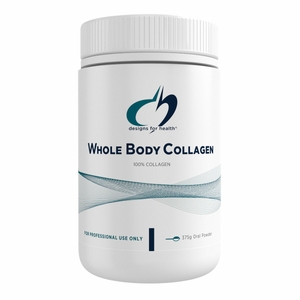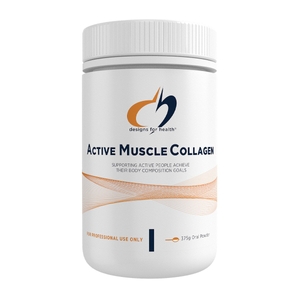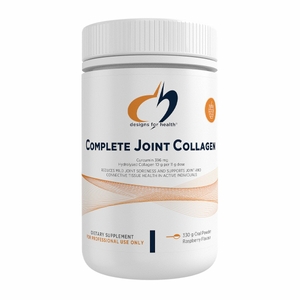
As a healthcare practitioner, you know that healthy skin begins on the inside and products you apply to your skin can help improve its appearance. But the structure and optimal function of the largest organ in your body depends on the appropriate nutrients, such as collagen, healthy fats, vitamins, and minerals.
True beauty may come from within, but your skin is the first thing people see when they look at you. And it can give away a lot about your physical and mental health and how you spend your time. So, taking proper care of your skin is essential to look your best when you step out into the world and face the judgement of the people you meet.
Unfortunately, you don’t keep the baby-smooth skin with which you are born. Instead, it changes as you age, losing firmness and elasticity, resulting in wrinkles and sagging. As a result, your patients may ask you what they can do to reduce the physical signs of aging and boost their skin health.
Since 80% of your skin is collagen and collagen production slows as you get older, especially after menopause, research has shown that collagen peptides are the key to improving skin health. They delay the signs of aging by improving the elasticity and firmness of the skin to slow the formation of wrinkles. So, how do they work?
Collagen fibres in the dermis promote healthy skin
On the surface, the skin appears to be a simple structure. But it is a complex organ that needs nurturing as much as any other body part. And it’s not just for appearances. Your skin reflects your overall state of health.
So, first, some quick skin anatomy revision. Your skin consists of three layers: the epidermis, dermis and hypodermis. The structure and function of each layer are unique.
- The epidermis is the outermost layer of skin made up of four types of cells: keratinocytes, melanocytes, Langerhans’ cells, and Merkel’s cells. Within this thin layer of skin, there are seven distinct layers: the stratum basale (the deepest portion of the epidermis), stratum spinosum, stratum granulosum, stratum lucidum, and stratum corneum (the top-most part of the epidermis).
The keratinocytes are the most prolific type of cell in the epidermis and develop in the basal layer. As they mature, they migrate towards the skin’s surface, performing different functions as their structure changes.
The primary function of the epidermis is protection from the sun, pathogens, and chemicals. It is also responsible for skin colour, the synthesis of vitamin D and keeping the skin hydrated (1).
- The dermis is the layer of skin we are most interested in as it forms the foundation to which the epidermis is attached. It consists primarily of connective tissue in the form of collagen and elastic fibres. And glycosaminoglycans, such as hyaluronic acid, proteoglycans, and glycoproteins, make up a shapeless extracellular substance between the fibres.
There are only two layers in the dermis: the upper layer is the papillary dermis, and the lower layer is the reticular dermis. The papillary dermis consists of loose, highly vascular connective tissue. And the reticular dermis is a layer of dense connective fibres forming the bulk of the dermis.
The dermis functions include skin support, protection, thermoregulation, and sensation (2).
- The hypodermis, the final layer of the skin, and it consists primarily of adipose tissue. Its functions include thermoregulation, cushioning and protection, energy storage and connecting the skin to the muscles and bones (3).
Considering the thickest layer of skin is the reticular dermis, and the connective tissue responsible for its structure is made primarily from collagen, it is evident that the skin’s appearance and health are influenced by the structure and function of this layer.
Intrinsic and extrinsic causes of skin aging
The familiar signs of aging on the skin are the result of both internal and external factors. Because your skin forms a barrier between your body and the environment, everything it is exposed to, the natural aging process, and your genes influence its structure and function.
The common physical signs of skin aging include wrinkles, sagging, changes in pigmentation and spider veins. While the topical application of skin health-promoting products can improve the appearance of the skin, the only way to slow the effects of aging is to identify and treat the cause or causes of changes to the skin’s structure.
A systematic review and meta-analysis published in Scientific Reports in 2021 identified seven risk factors for various skin-aging phenotypes that include (4):
- Age
- Gender
- Ethnicity
- Air pollution
- Nutrition
- Smoking
- Sun exposure.
Wrinkles and sagging skin occur as part of the natural aging process, and you can’t change your chronological age. As you get older, the proliferation of cells in the basal layer of the skin diminishes. As a result, the epidermis starts to thin, and there is less contact area between the dermis and the epidermis, restricting the exchange of nutrients.
Additionally, from age thirty, the fibroblasts, the collagen-producing cells in the skin, don’t produce as much collagen as they did when you were younger. Consequently, collagen and elastin fibres in the dermis become less dense. For women, this decline in fibroblast function becomes more evident after menopause. Your skin also loses moisture and becomes progressively drier (5).
Not only does what is going on inside your body affects your skin’s appearance. Environmental factors also have an impact on collagen production in your skin. For example, sun exposure accounts for up to 80% of facial skin aging (6). But, it is not only the sun you need to be wary of. Air pollution, smoking, dietary choices, lack of sleep, a sedentary lifestyle and the products you use on your skin can also contribute to wrinkles and sagging skin (7).
Collagen peptides proven to promote skin health
If skin aging is the result of a decline in collagen levels in the dermal layer, then is it possible to boost collagen production in the skin as you age? Let’s take a brief look at collagen.
Collagen
It is evident that collagen is crucial for healthy skin, but what is it? Simply, collagen is a type of protein used to make connective tissues throughout the body, including the skin, bone, muscles, tendons, and cartilage. It has a fibre-like structure with the ability to stretch, which makes these tissues strong and resilient (8).
Collagen is found naturally in foods such as meat, fish and poultry, or the flesh of animals. So, making broth from the tougher cuts of meat which contain a lot of connective tissue, can be a great source of collagen. However, your body can also produce collagen from other proteins in your diet.
Collagen supplements have become increasingly popular in the last decade. Most of them contain hydrolysed collagen, or collagen broken down into smaller parts called peptides, to make them easier to absorb and use in the body. Let’s look at two research studies showing these supplements to be beneficial for skin health.
Study #1: Oral intake of specific bioactive collagen peptides reduces skin wrinkles and increases dermal matrix synthesis
To examine the effects of collagen peptide supplementation on wrinkles, researchers recruited 114 healthy female participants for a double-blind, placebo-controlled study. They were split into two groups of 57 participants each and were randomly assigned either 2.5g of collagen peptide supplement per day or a placebo, for eight weeks. They recorded a statistically significant reduction in wrinkles after four and eight weeks in the participants who were given the collagen peptide supplement (9).
The researchers examined the physical appearance of wrinkles and took biopsies to see whether there were any changes to the skin’s structure. They found a higher content of collagen and other fibres related to collagen in the dermal layer of the skin in participants who had been given the collagen peptide supplement.
Study #2: Oral supplementation of specific collagen peptides has beneficial effects on human skin physiology: a double-blind, placebo-controlled study
In another double-blind, placebo-controlled study, 69 healthy female participants were split into three groups. One group was given 2.5g of a hydrolysed collagen supplement, the second group was assigned 5g of the hydrolysed collagen supplement, and the third group was given a placebo, once daily for eight weeks. The researchers measured skin elasticity, skin moisture, transepidermal water loss and skin roughness at four and eight weeks, and skin elasticity four weeks after the last dose of the collagen peptide supplement (10).
The results showed a statistically significant increase in skin elasticity for all the participants taking the supplement, but the most important difference was observed in the older women. Although the results for the other skin health parameters were also evident, they were not statistically significant.
Collagen peptides supplements to boost skin health
Nourishing your skin from the inside can slow down the natural aging process, resulting in wrinkles and sagging skin. However, when you use collagen peptides in combination with a healthy diet and lifestyle, you may be able to boost your skin’s health, improving its structure and function.
Research shows that collagen peptides are effective in helping your body restore and maintain the collagen in the dermal layer of your skin. When your epidermis is attached to a firmer foundation, it continues to offer the support your skin enjoyed in your younger years.
Bioactive collagen peptides can stimulate skin metabolism to prevent the loss of collagen fibres from the inside. The result is firmer and smoother skin with fewer wrinkles.






